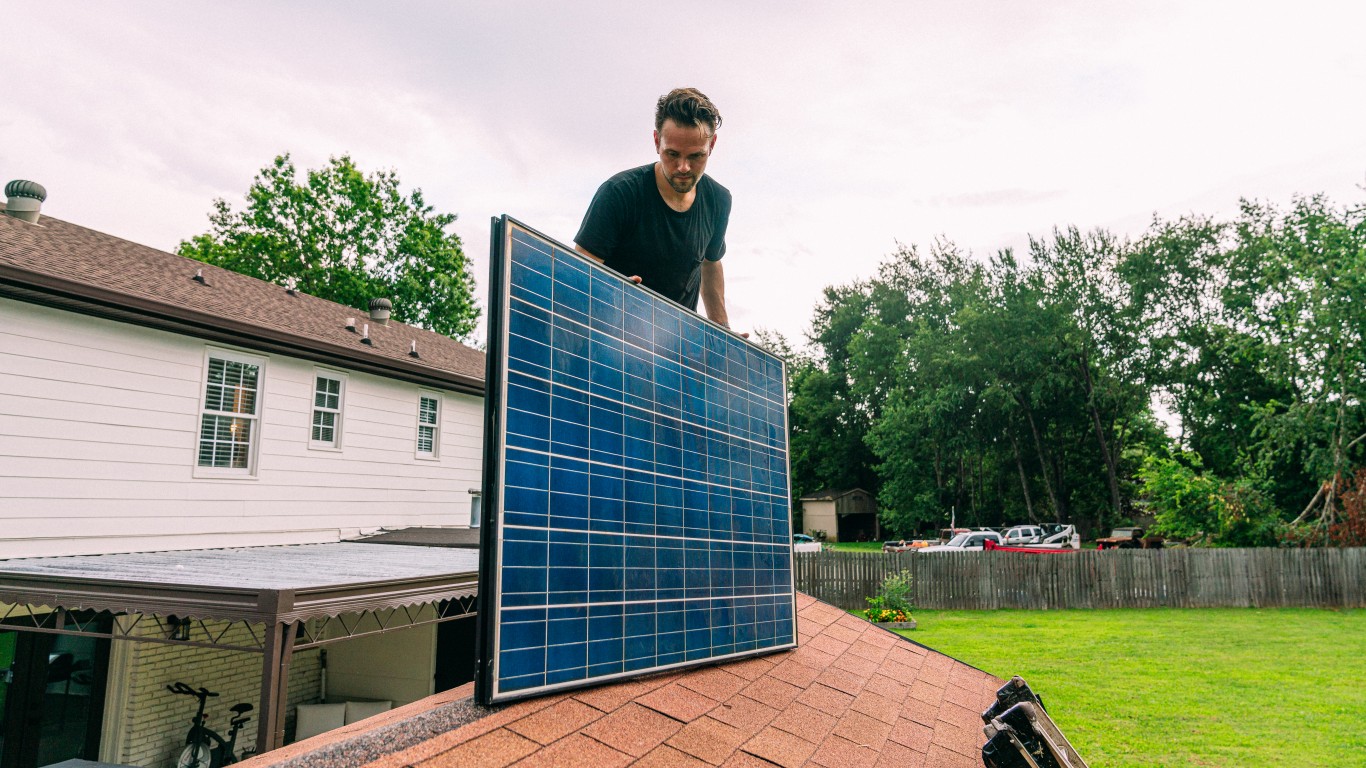
Spring storms that emerged with the receding of winter brought heavy rains across much of the United States. Now, Americans are looking forward to summer — which in some regions is a dry season. No matter where you are in the country, however, there is always the chance of rain.
The United States is home to wildly diverse climates and weather patterns. 24/7 Wall St. examined this geographical variation with a focus on precipitation. For each state, we reviewed yearly average rainfall between 1901 and 2000, as well as 30 year average precipitation levels through 2010 from the government scientific agency National Oceanic and Atmospheric Administration (NOAA).
Some states have distinct wet and dry seasons. In an email to 24/7 Wall St., U.S. Department of Agriculture meteorologist Brad Rippey explained that in California, for example, “The wet season, lasting from late autumn to early spring, is driven by storms associated with the polar jet stream, sometimes supplemented by subtropical moisture (atmospheric rivers or ‘pineapple express’).”
California and several southwestern states, during this part of the year have a Mediterranean climate, characterized by sometimes exceedingly dry summers, Rippey said. Elsewhere, such as on the Plains, where moisture from the Gulf of Mexico is pulled into the region, or in near-tropical states like Florida, precipitation peaks during the warm season.
Peak precipitation occurs at different months in different states. In 34 states, the rainiest months are the summer months of May, June, and July. March is the rainiest month in the New England states of Massachusetts, New Jersey, and Rhode Island, as well as in Alabama — one of the rainiest states in the nation. In eight states, late fall and winter months record peak rainfall.
Click here to see the states with the most rain.
To identify the states with the most rain, 24/7 Wall St. reviewed for each state average yearly precipitation from 1901 to 2000 using the Climate-at-a-Glance feature of the National Centers for Environmental Information produced by the National Oceanic and Atmospheric Administration (NOAA). We also reviewed for each state average monthly rainfall based on precipitation data collected from 1981 through 2010, also from NOAA. 100 years of data were not available for Hawaii, so its ranking is based on the average yearly rainfall over the 30 years through 2010.

50. Nevada
> Average yearly rainfall: 10.3 inches
> Average monthly rainfall: 0.7 inches
> Rainiest time of year: 0.9 inches in January
[in-text-ad]
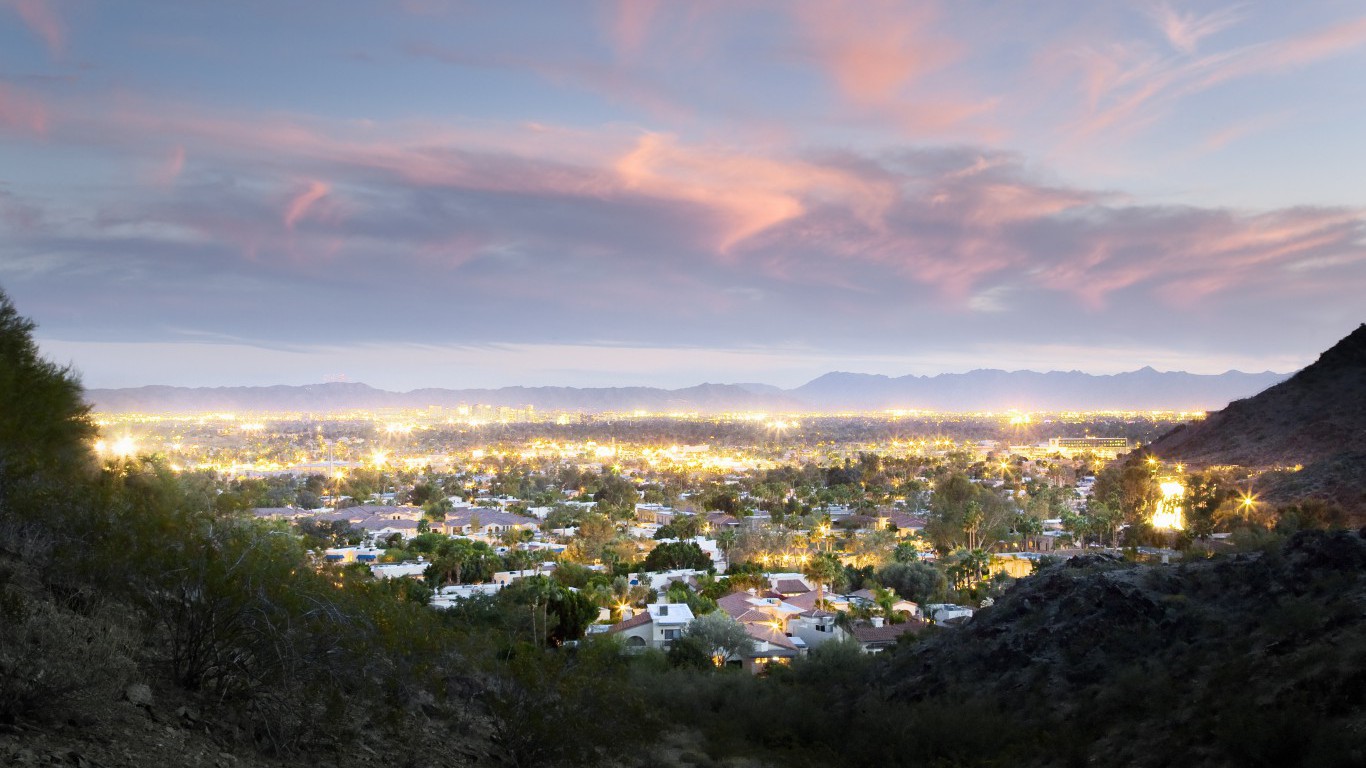
49. Arizona
> Average yearly rainfall: 12.6 inches
> Average monthly rainfall: 0.9 inches
> Rainiest time of year: 1.7 inches in August

48. Utah
> Average yearly rainfall: 13.6 inches
> Average monthly rainfall: 1.1 inches
> Rainiest time of year: 1.5 inches in April
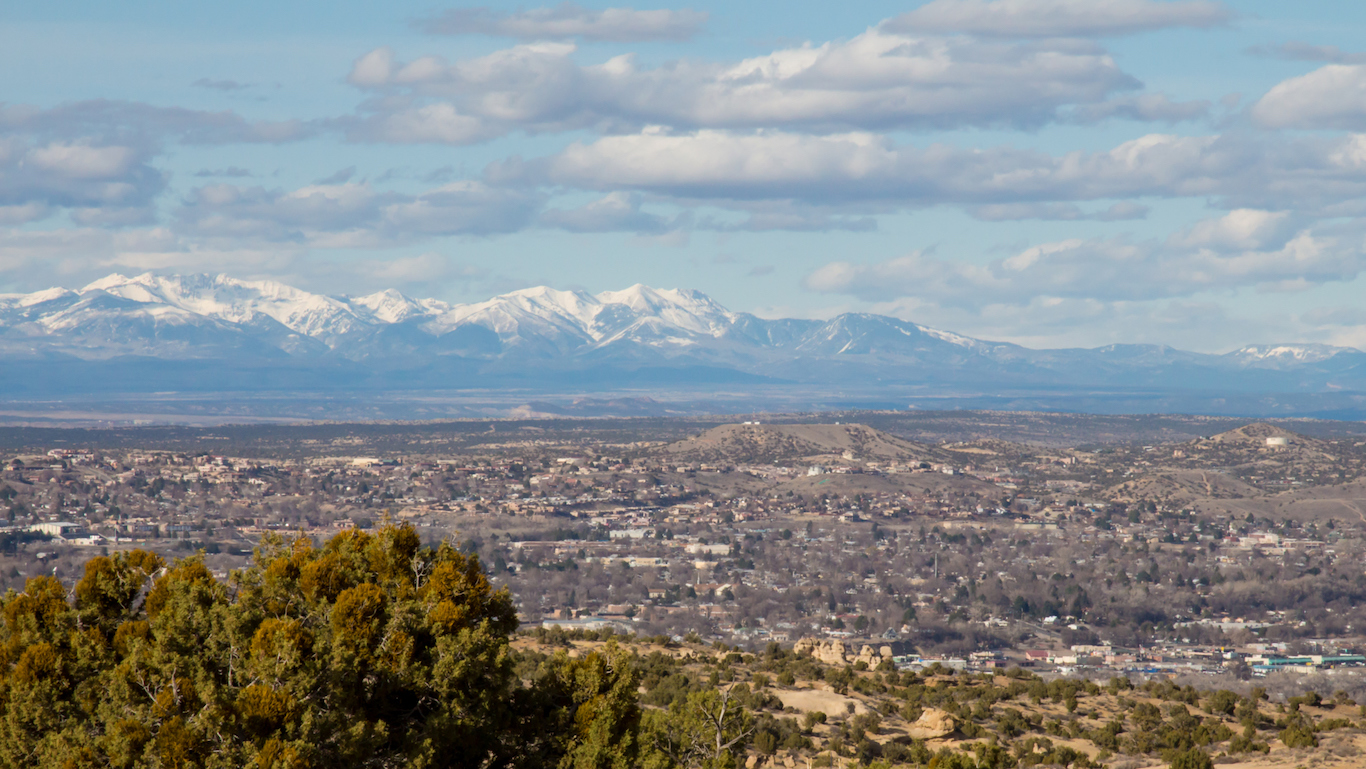
47. New Mexico
> Average yearly rainfall: 14.0 inches
> Average monthly rainfall: 1.1 inches
> Rainiest time of year: 2.2 inches in August
[in-text-ad-2]
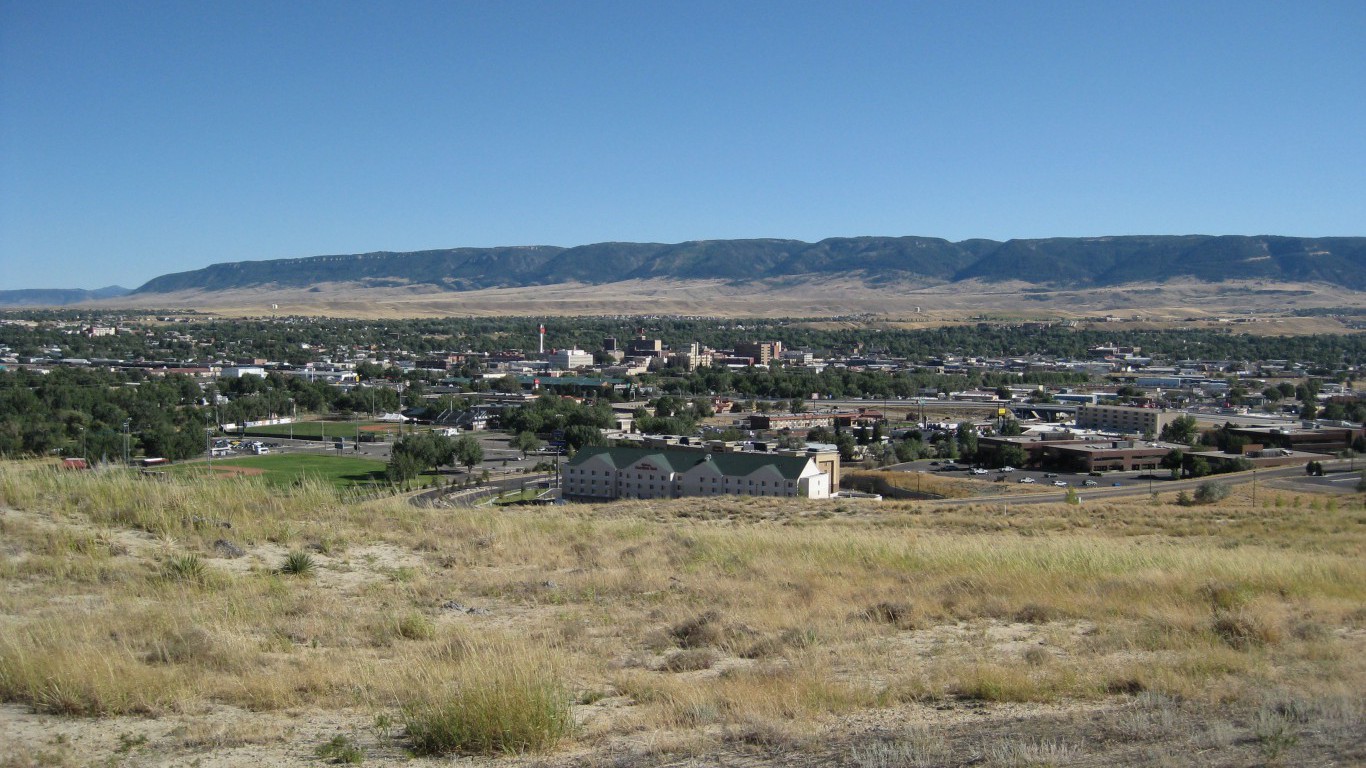
46. Wyoming
> Average yearly rainfall: 15.9 inches
> Average monthly rainfall: 1.2 inches
> Rainiest time of year: 2.1 inches in May
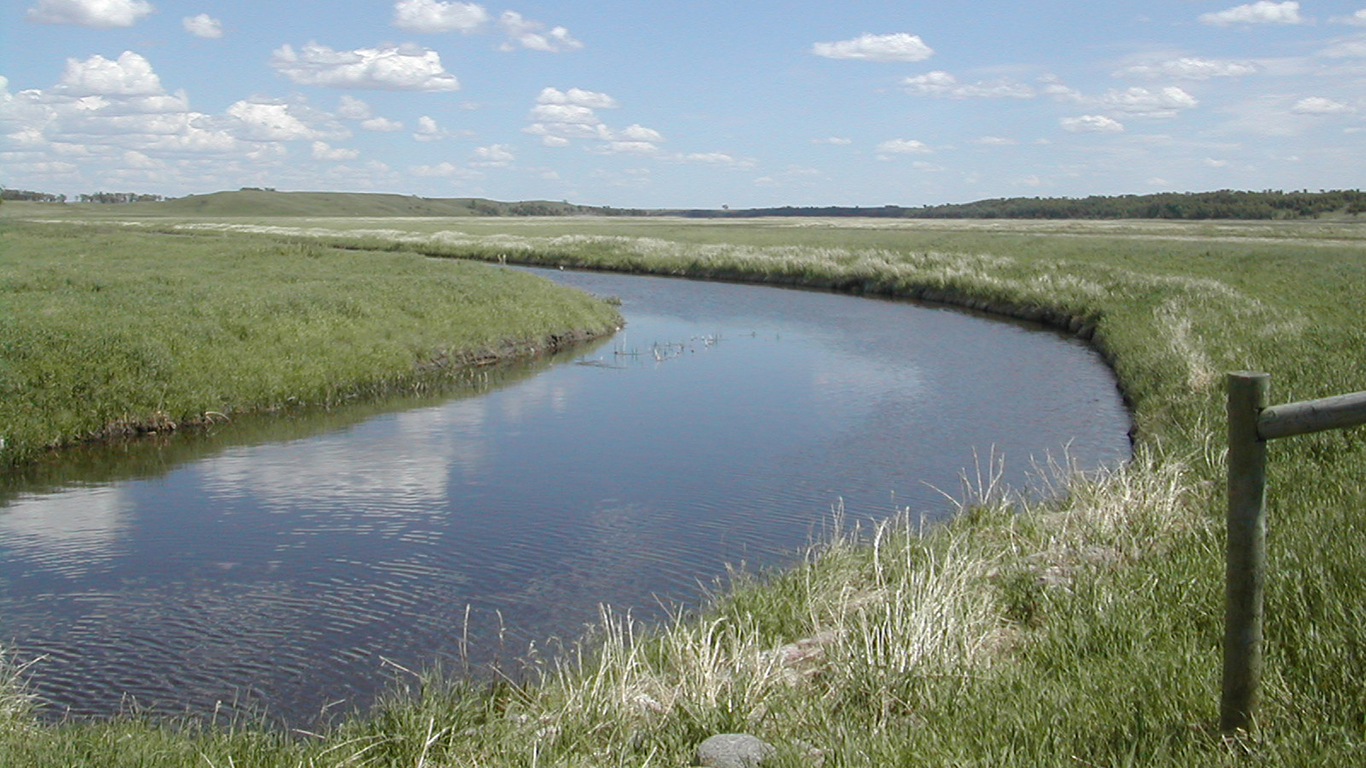
45. North Dakota
> Average yearly rainfall: 17.3 inches
> Average monthly rainfall: 1.6 inches
> Rainiest time of year: 3.3 inches in June
[in-text-ad]
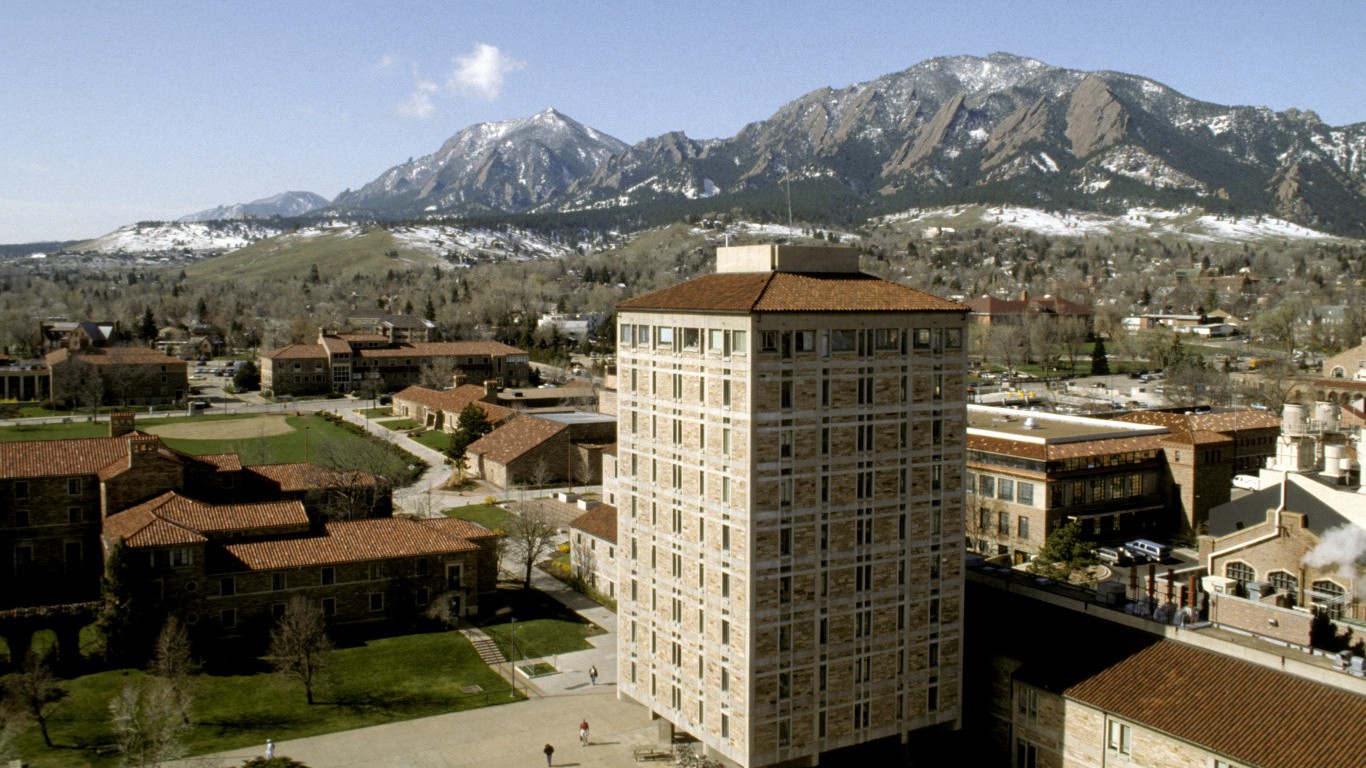
44. Colorado
> Average yearly rainfall: 18.1 inches
> Average monthly rainfall: 1.0 inches
> Rainiest time of year: 1.9 inches in August
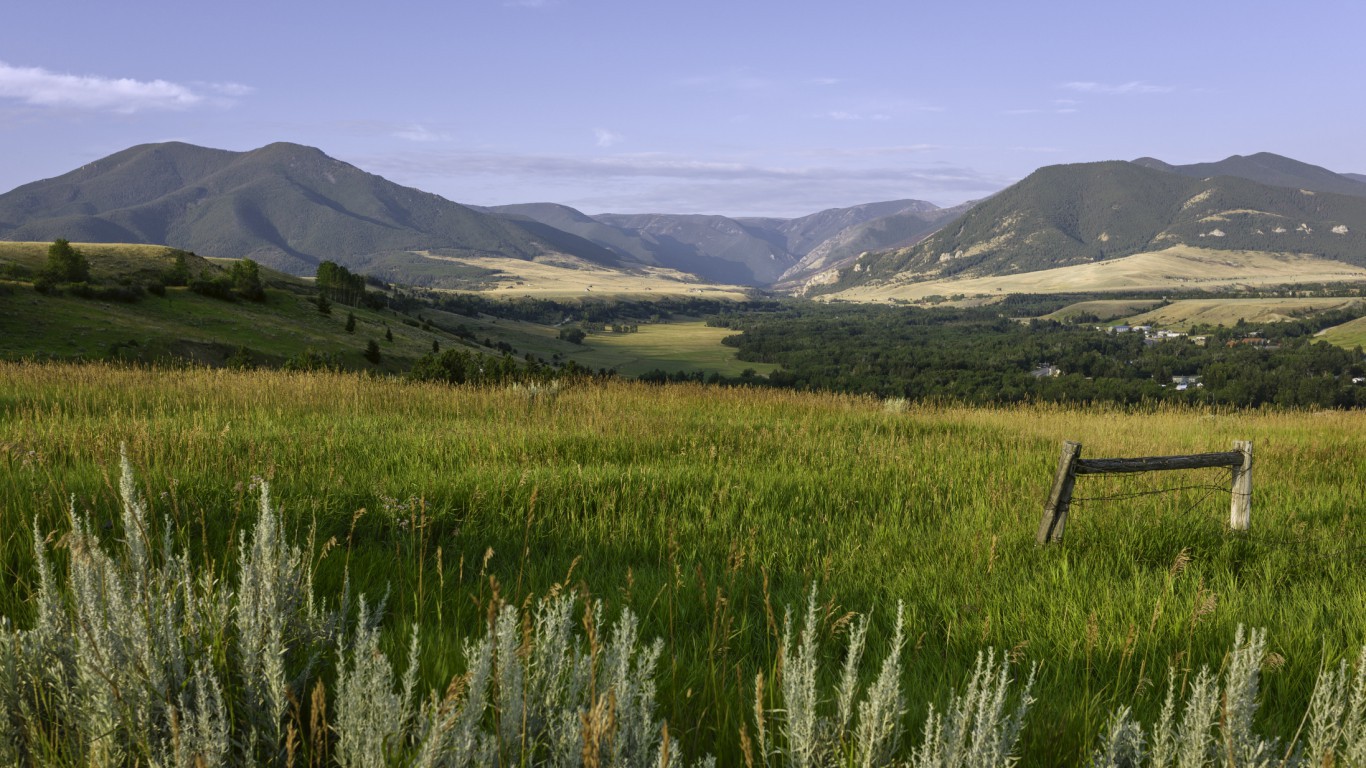
43. Montana
> Average yearly rainfall: 18.7 inches
> Average monthly rainfall: 1.1 inches
> Rainiest time of year: 2.3 inches in June
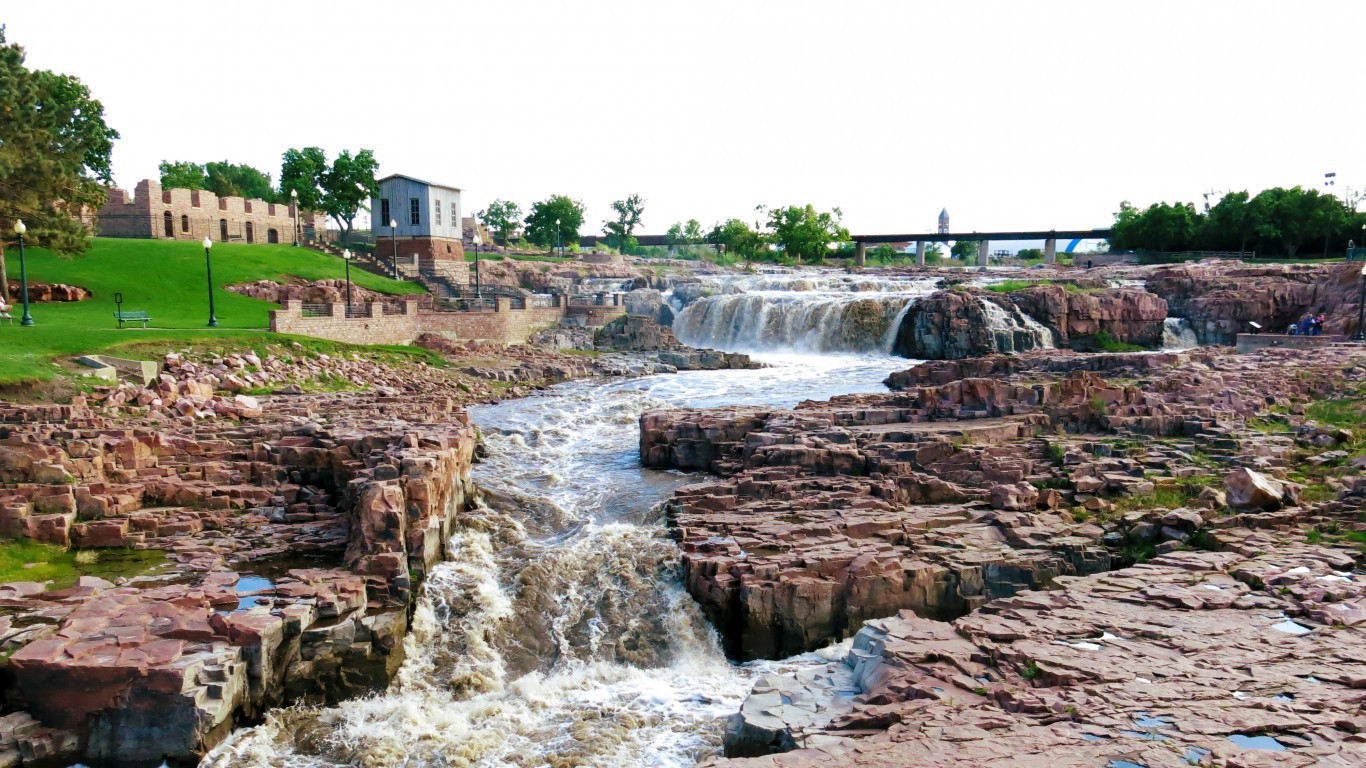
42. South Dakota
> Average yearly rainfall: 19.1 inches
> Average monthly rainfall: 1.8 inches
> Rainiest time of year: 3.5 inches in June
[in-text-ad-2]

41. California
> Average yearly rainfall: 22.4 inches
> Average monthly rainfall: 1.6 inches
> Rainiest time of year: 3.8 inches in February
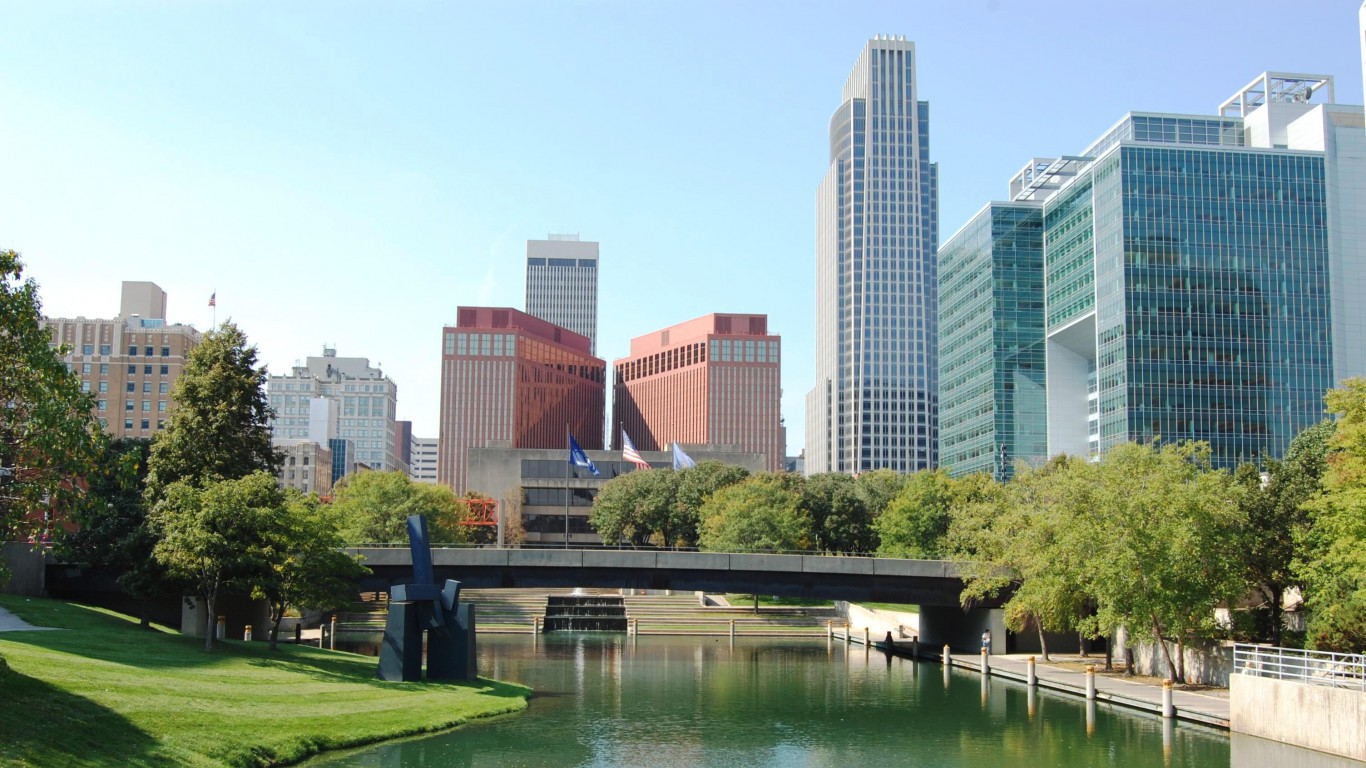
40. Nebraska
> Average yearly rainfall: 22.6 inches
> Average monthly rainfall: 2.1 inches
> Rainiest time of year: 3.9 inches in May
[in-text-ad]
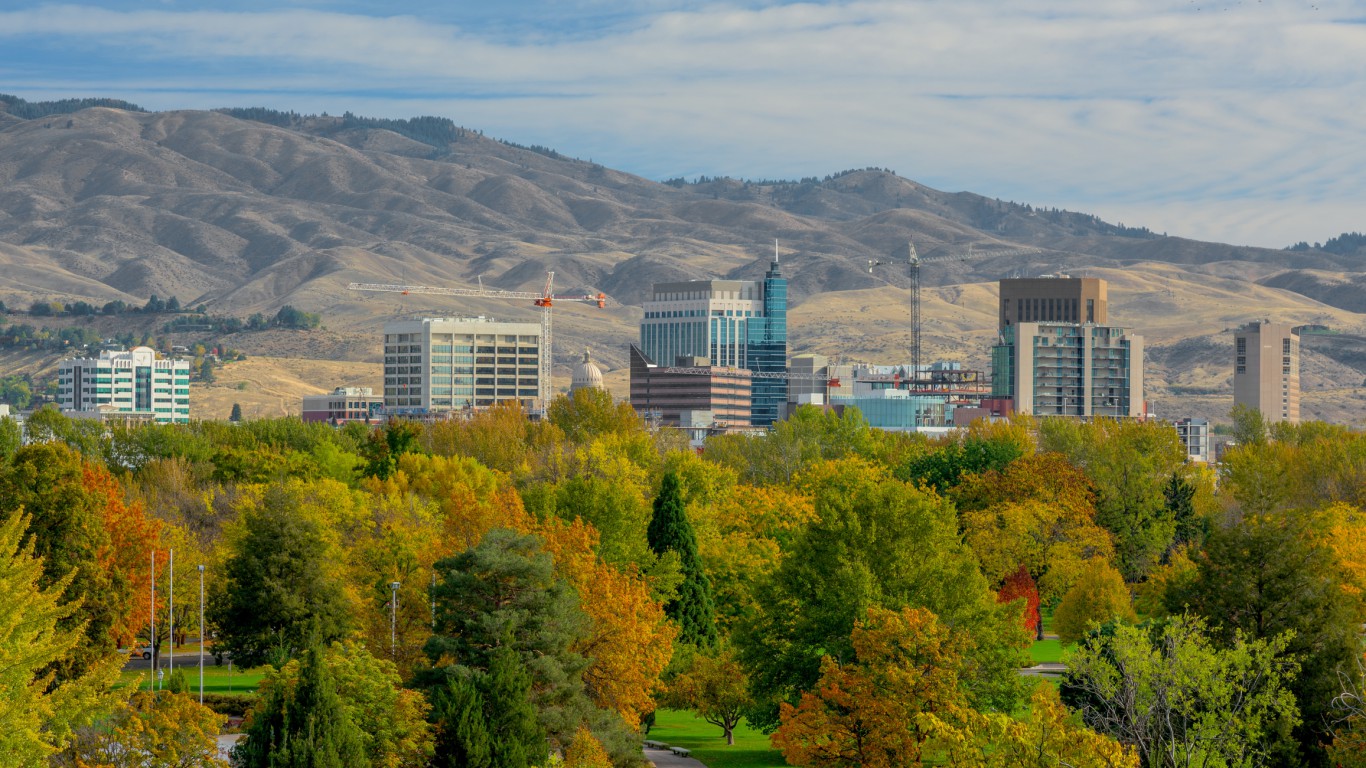
39. Idaho
> Average yearly rainfall: 23.9 inches
> Average monthly rainfall: 1.0 inches
> Rainiest time of year: 1.5 inches in May

38. Minnesota
> Average yearly rainfall: 26.0 inches
> Average monthly rainfall: 2.4 inches
> Rainiest time of year: 4.3 inches in June

37. Kansas
> Average yearly rainfall: 27.1 inches
> Average monthly rainfall: 2.3 inches
> Rainiest time of year: 4.3 inches in June
[in-text-ad-2]
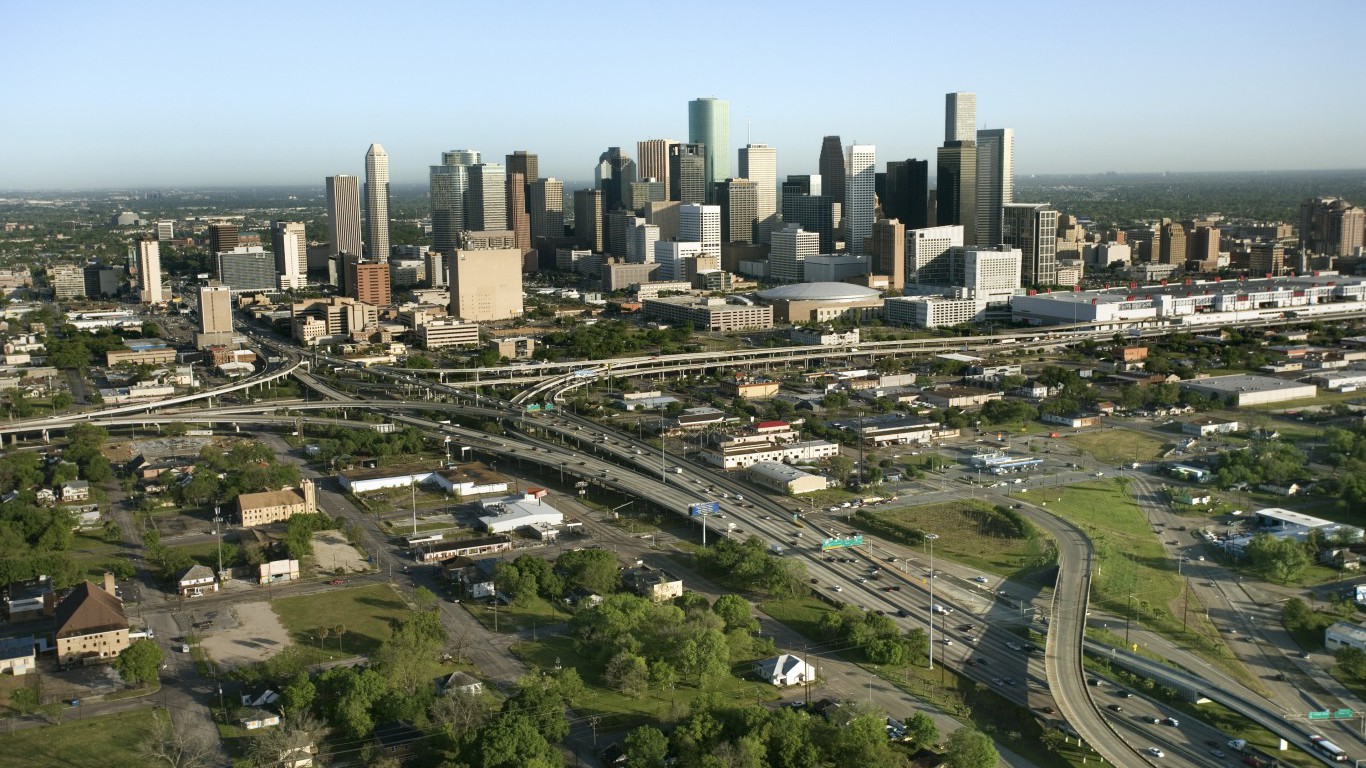
36. Texas
> Average yearly rainfall: 27.1 inches
> Average monthly rainfall: 2.5 inches
> Rainiest time of year: 3.6 inches in June
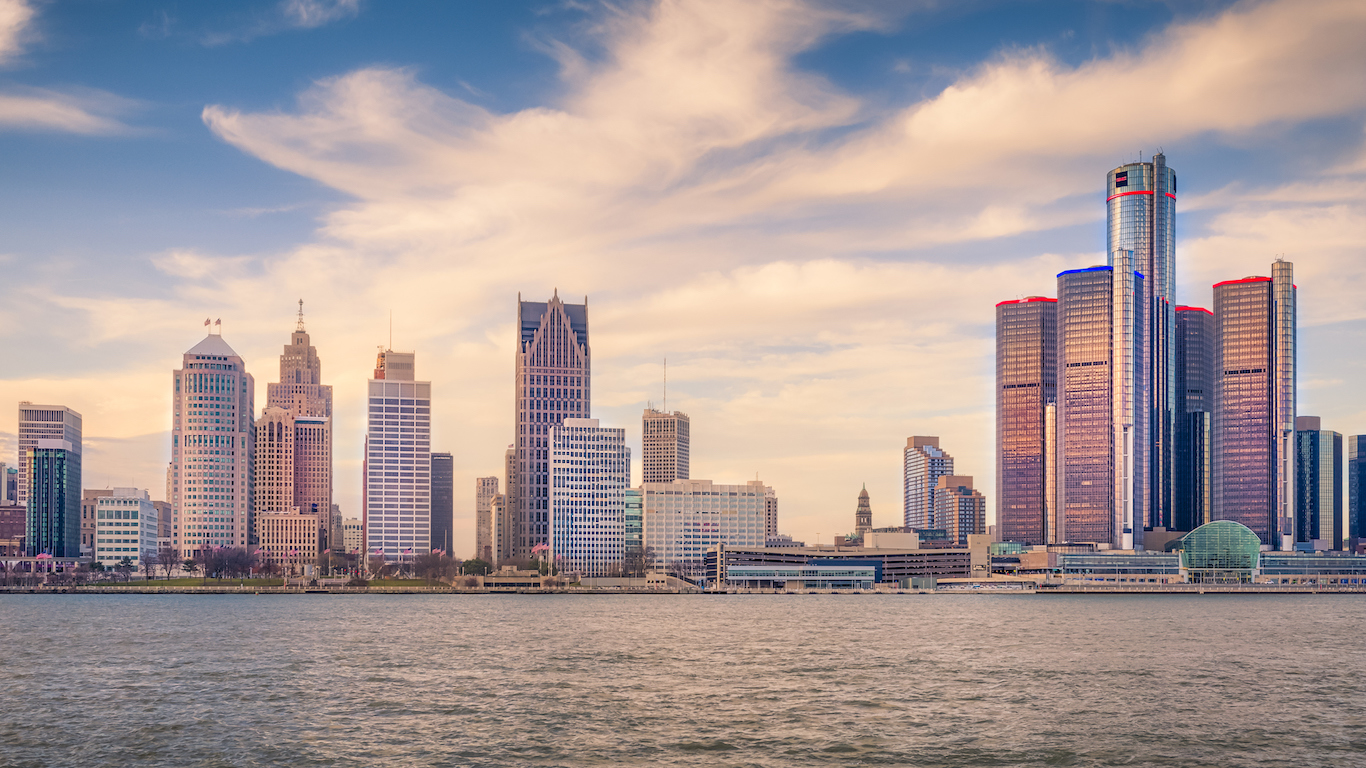
35. Michigan
> Average yearly rainfall: 31.1 inches
> Average monthly rainfall: 2.6 inches
> Rainiest time of year: 3.5 inches in September
[in-text-ad]

34. Wisconsin
> Average yearly rainfall: 31.3 inches
> Average monthly rainfall: 2.7 inches
> Rainiest time of year: 4.2 inches in June

33. Iowa
> Average yearly rainfall: 32.1 inches
> Average monthly rainfall: 2.8 inches
> Rainiest time of year: 4.5 inches in June
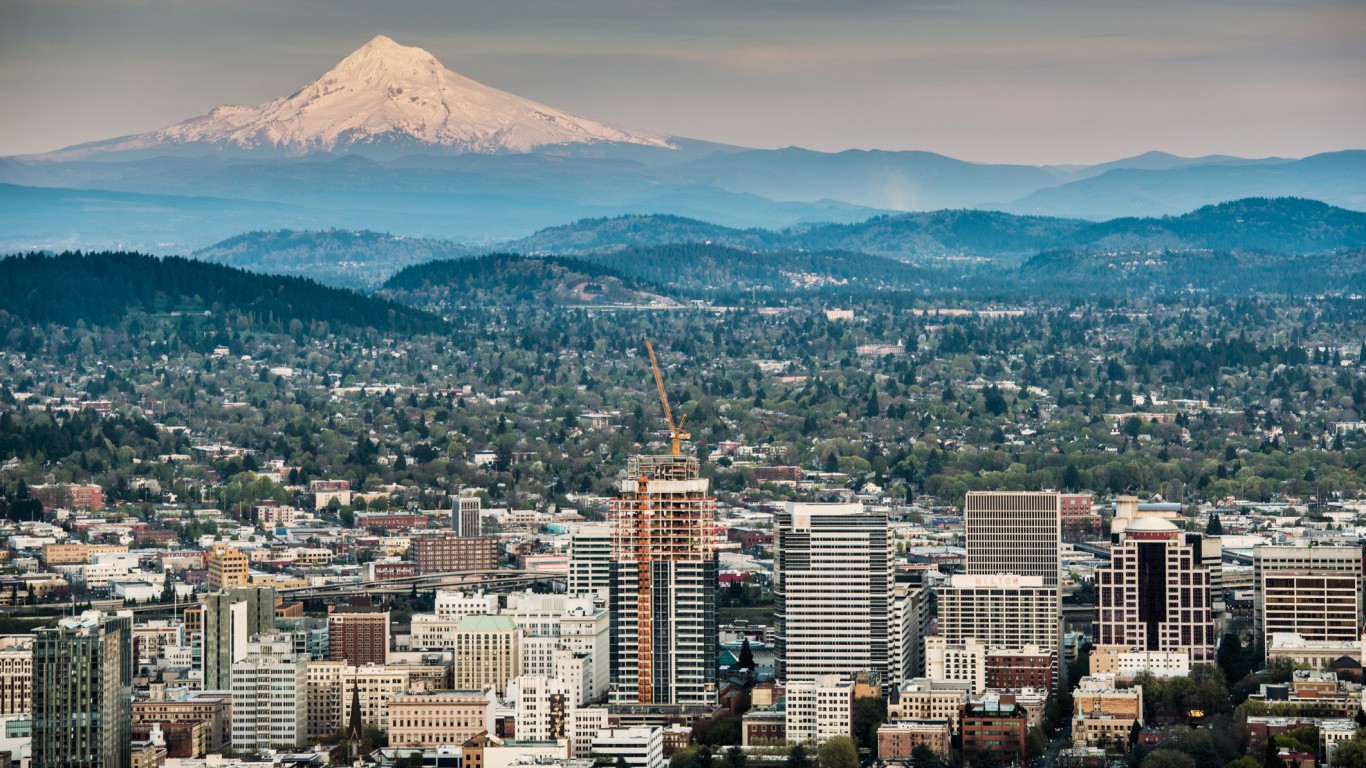
32. Oregon
> Average yearly rainfall: 32.2 inches
> Average monthly rainfall: 2.8 inches
> Rainiest time of year: 5.5 inches in December
[in-text-ad-2]

31. Oklahoma
> Average yearly rainfall: 33.8 inches
> Average monthly rainfall: 3.3 inches
> Rainiest time of year: 5.2 inches in May
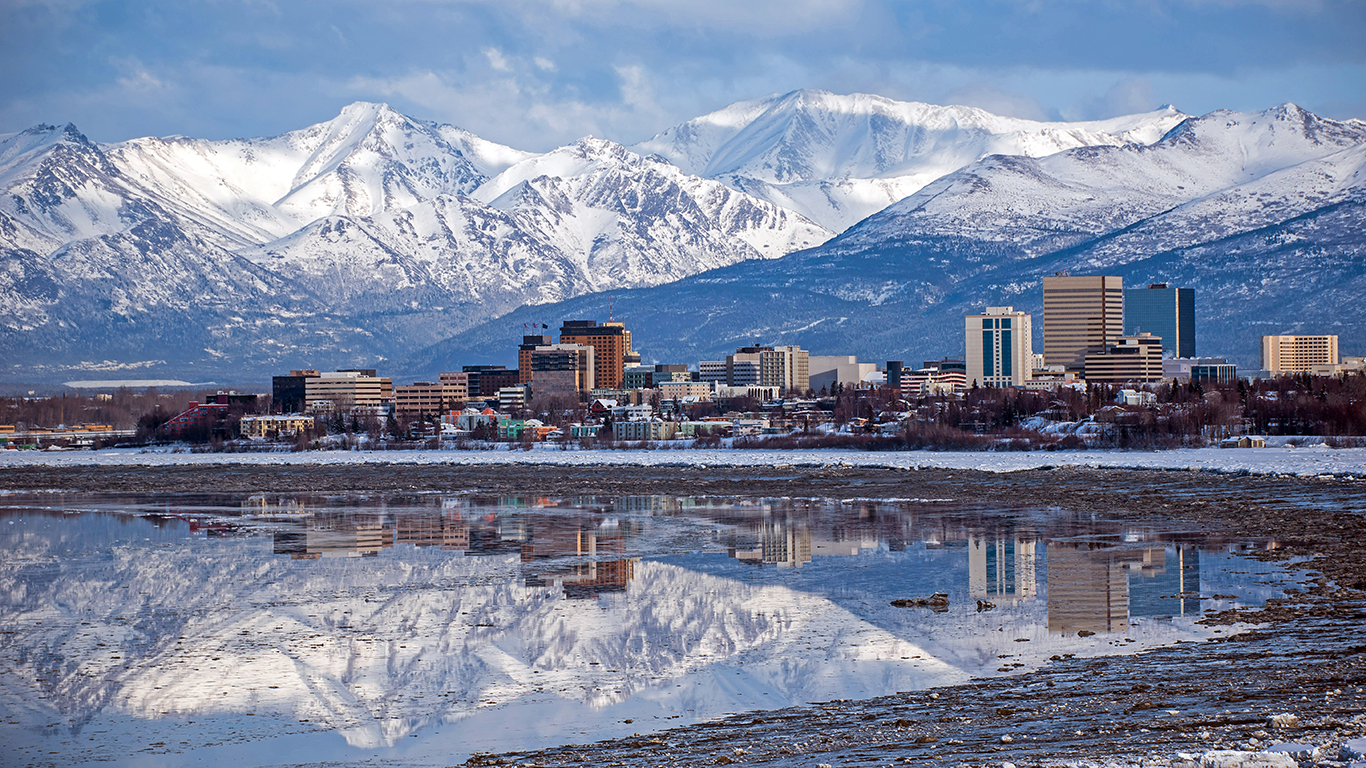
30. Alaska
> Average yearly rainfall: 36.7 inches
> Average monthly rainfall: 3.1 inches
> Rainiest time of year: 4.7 inches in September
[in-text-ad]
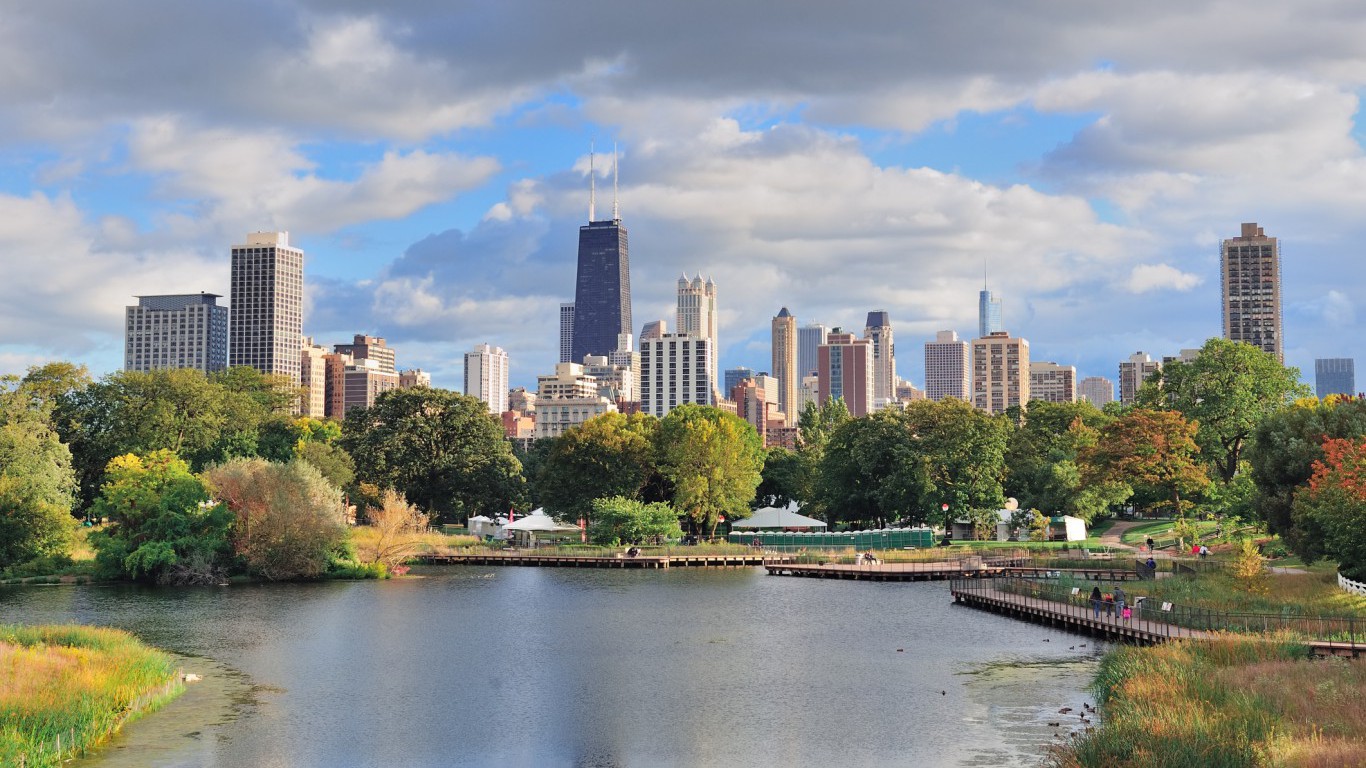
29. Illinois
> Average yearly rainfall: 37.5 inches
> Average monthly rainfall: 3.1 inches
> Rainiest time of year: 4.1 inches in May

28. Ohio
> Average yearly rainfall: 38.3 inches
> Average monthly rainfall: 3.3 inches
> Rainiest time of year: 4.2 inches in May

27. Indiana
> Average yearly rainfall: 39.7 inches
> Average monthly rainfall: 3.4 inches
> Rainiest time of year: 4.7 inches in May
[in-text-ad-2]

26. New York
> Average yearly rainfall: 40.3 inches
> Average monthly rainfall: 3.5 inches
> Rainiest time of year: 3.9 inches in June

25. Missouri
> Average yearly rainfall: 40.5 inches
> Average monthly rainfall: 3.5 inches
> Rainiest time of year: 5.0 inches in May
[in-text-ad]

24. Vermont
> Average yearly rainfall: 41.7 inches
> Average monthly rainfall: 3.1 inches
> Rainiest time of year: 4.2 inches in July

23. Massachusetts
> Average yearly rainfall: 42.0 inches
> Average monthly rainfall: 4.0 inches
> Rainiest time of year: 4.7 inches in March

22. Maine
> Average yearly rainfall: 42.0 inches
> Average monthly rainfall: 3.6 inches
> Rainiest time of year: 4.3 inches in November
[in-text-ad-2]

21. Pennsylvania
> Average yearly rainfall: 42.0 inches
> Average monthly rainfall: 3.4 inches
> Rainiest time of year: 4.3 inches in July

20. Washington
> Average yearly rainfall: 42.0 inches
> Average monthly rainfall: 3.2 inches
> Rainiest time of year: 6.1 inches in November
[in-text-ad]

19. Maryland
> Average yearly rainfall: 42.6 inches
> Average monthly rainfall: 3.5 inches
> Rainiest time of year: 4.1 inches in July

18. Virginia
> Average yearly rainfall: 42.9 inches
> Average monthly rainfall: 3.6 inches
> Rainiest time of year: 4.5 inches in July

17. New Hampshire
> Average yearly rainfall: 43.5 inches
> Average monthly rainfall: 5.7 inches
> Rainiest time of year: 6.8 inches in November
[in-text-ad-2]
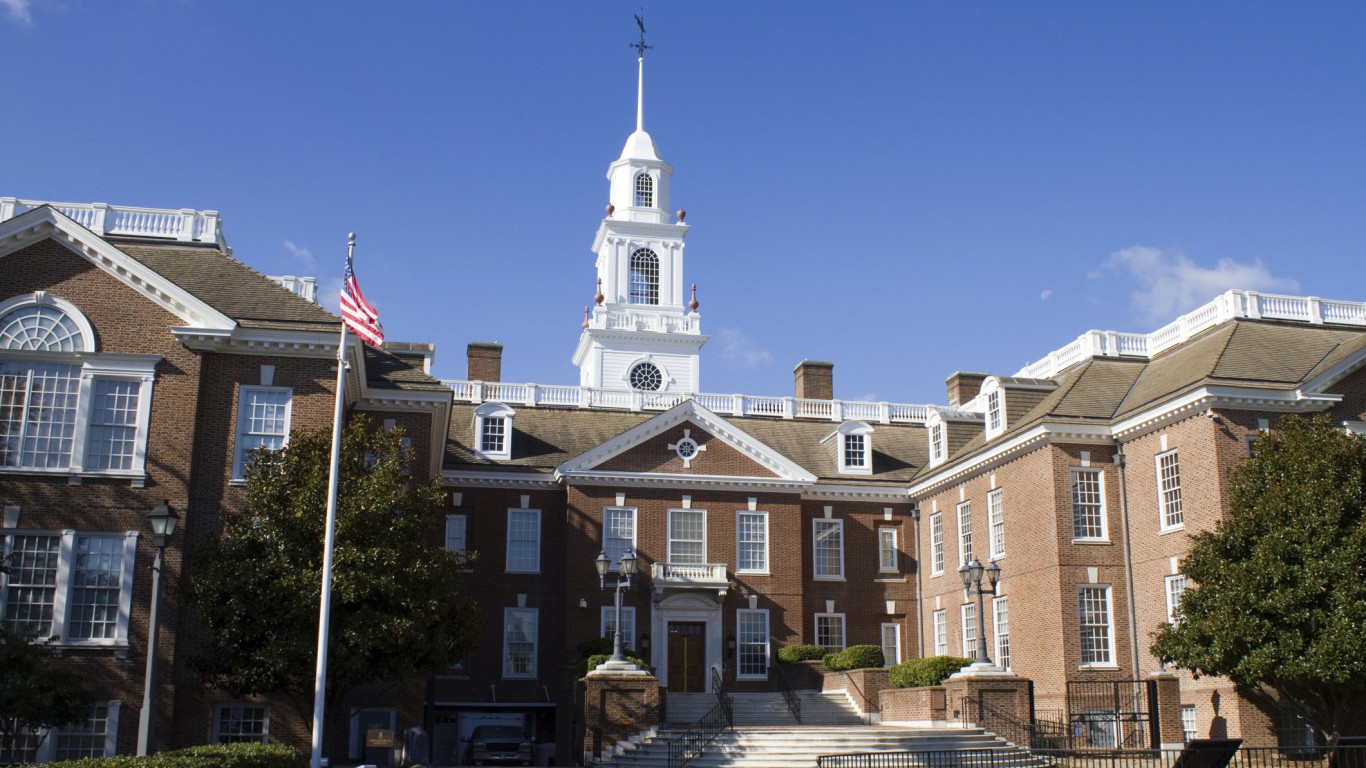
16. Delaware
> Average yearly rainfall: 43.5 inches
> Average monthly rainfall: 3.6 inches
> Rainiest time of year: 4.6 inches in July

15. West Virginia
> Average yearly rainfall: 44.7 inches
> Average monthly rainfall: 3.6 inches
> Rainiest time of year: 5.0 inches in July
[in-text-ad]

14. New Jersey
> Average yearly rainfall: 45.0 inches
> Average monthly rainfall: 3.6 inches
> Rainiest time of year: 4.1 inches in March

13. Rhode Island
> Average yearly rainfall: 45.2 inches
> Average monthly rainfall: 3.9 inches
> Rainiest time of year: 5.0 inches in March

12. Connecticut
> Average yearly rainfall: 46.9 inches
> Average monthly rainfall: 3.6 inches
> Rainiest time of year: 4.0 inches in April
[in-text-ad-2]

11. Kentucky
> Average yearly rainfall: 46.9 inches
> Average monthly rainfall: 3.9 inches
> Rainiest time of year: 5.1 inches in May

10. South Carolina
> Average yearly rainfall: 48.0 inches
> Average monthly rainfall: 3.9 inches
> Rainiest time of year: 5.9 inches in August
[in-text-ad]

9. North Carolina
> Average yearly rainfall: 49.3 inches
> Average monthly rainfall: 4.0 inches
> Rainiest time of year: 5.2 inches in August
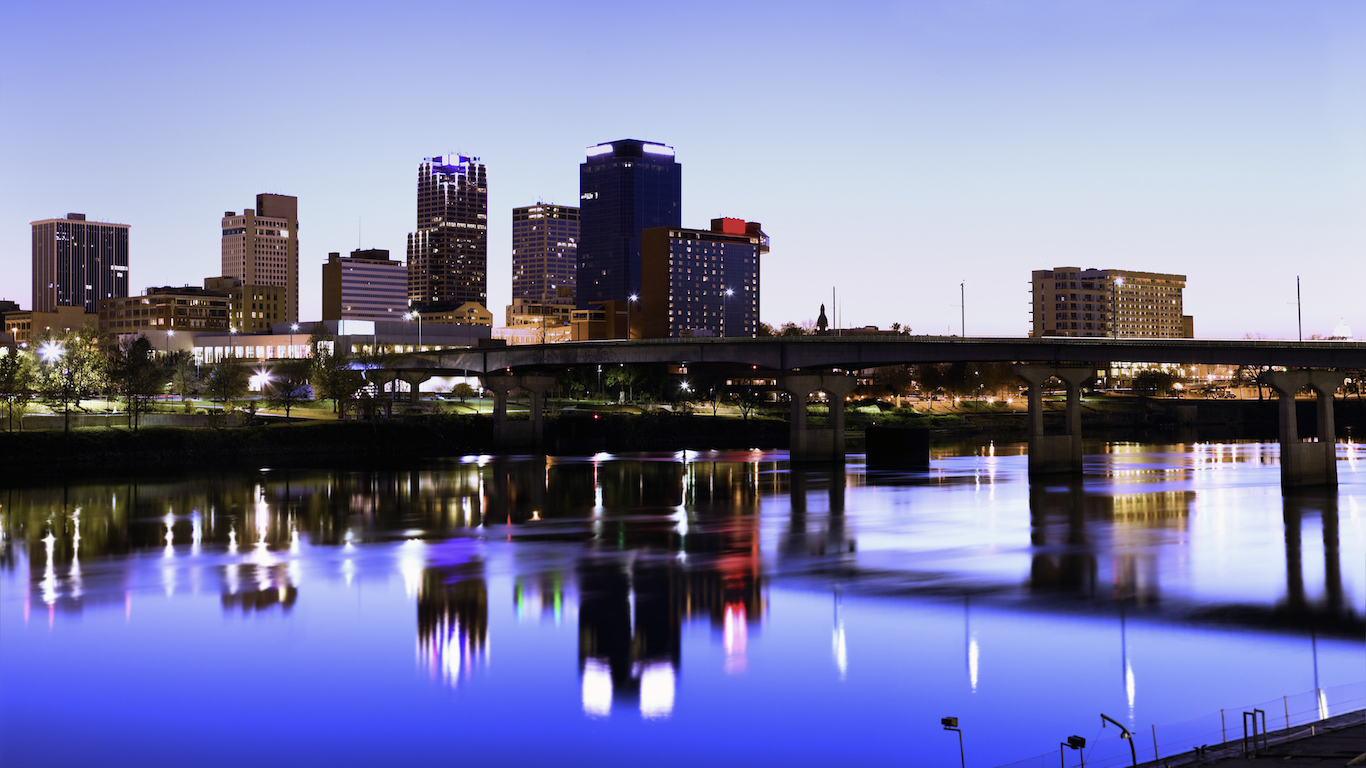
8. Arkansas
> Average yearly rainfall: 49.6 inches
> Average monthly rainfall: 4.0 inches
> Rainiest time of year: 5.1 inches in May

7. Georgia
> Average yearly rainfall: 50.1 inches
> Average monthly rainfall: 3.9 inches
> Rainiest time of year: 5.1 inches in July
[in-text-ad-2]

6. Tennessee
> Average yearly rainfall: 51.6 inches
> Average monthly rainfall: 4.1 inches
> Rainiest time of year: 4.8 inches in July

5. Florida
> Average yearly rainfall: 53.7 inches
> Average monthly rainfall: 4.5 inches
> Rainiest time of year: 7.5 inches in August
[in-text-ad]

4. Alabama
> Average yearly rainfall: 55.3 inches
> Average monthly rainfall: 4.7 inches
> Rainiest time of year: 5.7 inches in March

3. Mississippi
> Average yearly rainfall: 55.5 inches
> Average monthly rainfall: 4.6 inches
> Rainiest time of year: 5.5 inches in December

2. Louisiana
> Average yearly rainfall: 56.9 inches
> Average monthly rainfall: 4.8 inches
> Rainiest time of year: 6.6 inches in June
[in-text-ad-2]

1. Hawaii
> Average yearly rainfall: 57.2 inches
> Average monthly rainfall: 4.8 inches
> Rainiest time of year: 7.7 inches in December
Take Charge of Your Retirement: Find the Right Financial Advisor For You in Minutes (Sponsor)
Retirement planning doesn’t have to feel overwhelming. The key is finding professional guidance—and we’ve made it easier than ever for you to connect with the right financial advisor for your unique needs.
Here’s how it works:
1️ Answer a Few Simple Questions
Tell us a bit about your goals and preferences—it only takes a few minutes!
2️ Get Your Top Advisor Matches
This tool matches you with qualified advisors who specialize in helping people like you achieve financial success.
3️ Choose Your Best Fit
Review their profiles, schedule an introductory meeting, and select the advisor who feels right for you.
Why wait? Start building the retirement you’ve always dreamed of. Click here to get started today!
Thank you for reading! Have some feedback for us?
Contact the 24/7 Wall St. editorial team.
 24/7 Wall St.
24/7 Wall St. 24/7 Wall St.
24/7 Wall St. 24/7 Wall St.
24/7 Wall St. 24/7 Wall St.
24/7 Wall St.
